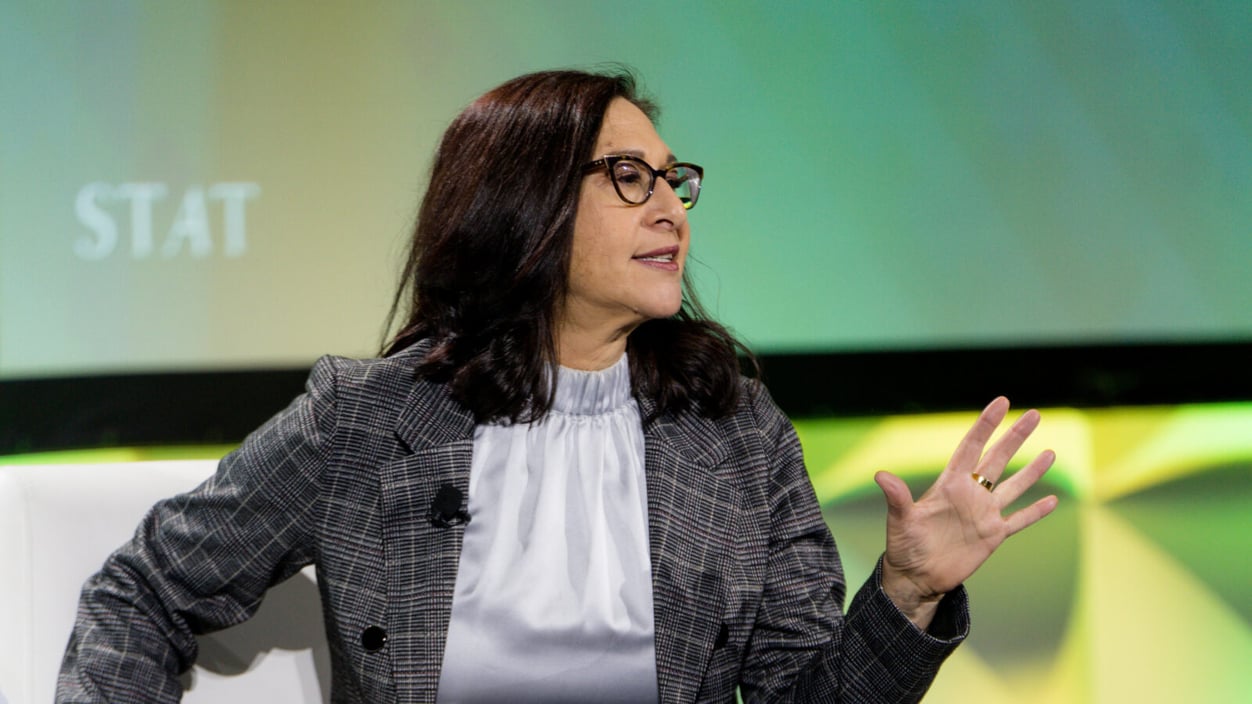closer look
How deep space poses different health challenges

Sarah Gonzalez for STAT
Dorit Donoviel has deep experience exploring the science of humans in space. Now she leads a consortium between Baylor College of Medicine, Caltech, and MIT that works with NASA to solve the health challenges that come with exploring deep space. That includes studying balance in microgravity, how astronauts might make drugs in space, and how to assess potential astronauts' mental fortitude in places like Antarctica. She talked with STAT's Nicholas St. Fleur about her work.
What are some of the health challenges in exploring deep space?
We've figured out how to keep humans healthy in what we call low Earth orbit, which is still within the protection of our atmosphere. What's different is that deep space means that we leave the protection of our atmosphere. That would include the moon, a space settlement outside of low-Earth orbit, or going to Mars.
What are the risks?
Space radiation. Second, you'd be surprised, but it's actually mental health because you're in a confined space.
Read the full interview.
drug development
The long and winding road to a treatment for frostbite
Rubbing snow or cold water on frozen limbs during the Napoleonic wars. Dipping a rabbit's ear in liquid nitrogen. Quickly rewarming limbs in heated water in the "Alaska method." It's been a long and circuitous road to a new drug to treat frostbite, including the path from an Alps-climbing surgeon to a tiny California biotech. On Wednesday, the FDA approved iloprost, under the brand name Aurlumyn, as the first drug for the disabling and notoriously hard-to-study disease.
The culmination of 30 years of research is not a cure, but the infusion could improve treatment for a damaging disease. "It's a tiny market, but to the patients that have these devastating injuries, it's a huge development," Peter Hackett, a wilderness medicine specialist at the University of Colorado, told STAT's Jason Mast. "We're talking about no fingers, versus all your fingers." Read more on the back story and prospect for the future.
obesity revolution
FDA warns sites selling what they say are chemicals found in weight-loss drugs
The websites say their chemicals are "for research use" and "not for human consumption," but these ingredients, found in popular diabetes and obesity drugs like Ozempic, Wegovy, and Zepbound, are marketed with dosing information and claims about their clinical benefits. That has drawn warning letters from the FDA to Synthetix Inc. DBA Helix Chemical Supply and US Chem Labs, with the agency saying the websites are selling unapproved and misbranded drug products.
STAT's Elaine Chen has previously reported that, amid shortage of the popular drugs, some people have turned to these websites and others, ordering the chemicals in powder form, mixing them, and injecting themselves at home. That's extremely risky, doctors say. It's not clear where the websites get their chemicals, and people could be mixing wrong amounts of the chemicals or in an unsterile way. Elaine has more.


No comments